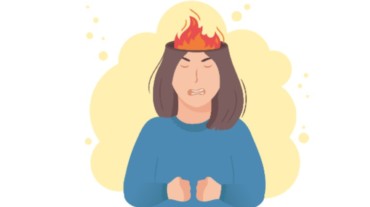
Mental illness, in spite of the social taboo that would like to brush it under the rug, is real. It can happen to anyone and when it does, it is important to seek help because your mental health requires as much attention as your physical health. Unless you want to live an impaired life where functioning on a day to day basis becomes a challenge.
There are certain habits that can manifest because of your mental health not being at its best and help you figure out if and when you need help. So, we talked to Kamna Chibber, a clinical psychologist and head of Department of Mental Health & Behavioural Sciences, Fortis Memorial Research Institute to understand what some of these habits are.
“Increased anger, irritability, and extreme worrying are a few habits to watch out for to begin with,” she says. “You will notice the person experiencing significant shifts in mood, from happy to low. It will also impact their productivity and social relationships.”
Here are some habits are tell-tale signs of your impaired mental health:
Habit 1: Getting angry and irritable without probable cause
It goes without saying that anger has triggers. You might feel this emotion after something untoward has happened, like when someone else gets credit for your work.

That said, someone who isn’t at their best mentally, might get angry without triggers and their anger could be uncalled for, unreasonable, and totally misplaced. If you’ve been feeling too angry lately but don’t quite know the root cause, you should probably seek help to deal with any unresolved issues.
Habit 2: Not being productive at work
When you’re suffering from a mental illness, the first thing you will probably notice is hampered productivity. This doesn’t just mean your ability to perform at work but your ability to go through the day performing daily tasks such as bathing, laundry, and cooking etc that keep your sense of routine normal.
Habit 3: Not eating enough or eating too much
Mental illness often attacks a person’s eating habits, be it killing the appetite or increasing it. When it comes to food, everything in moderation is great. However, too little or too much of it will eventually affect your physical health in extremely negative ways. Hence, if you see a change in your appetite, you should probably be alert about any mental health issues.

Habit 4: Picking fights at the drop of a hat
Humans are social animals and community care is extremely important for good mental health. Having stable social relationships will enhance it. If you’re someone who picks fights with people far too easily and happens to be very easily irritated, you need to introspect and figure what’s wrong.
If you find that your social relationships are not stable, it is time that you look at your own actions as well as the reason behind it.
Select Topics of your interest and let us customize your feed.
PERSONALISE NOWHabit 5: Sleeping all the time or not enough
When you’re mentally disturbed, your sleeping cycle gets affected to extreme extents. This means, you will either sleep too much because you want to run away from your reality or too little because negative thoughts keep you up. Either scenario requires your attention and effort to go back to a normal sleeping cycle.

Habit 6: Worrying too much
If you find that you’re constantly worried, it could be because you’re not your mentally healthiest self. Getting worked up a day before an important presentation or feeling stressed about an exam doesn’t count as much as long as you’re not worrying about something as basic as getting your groceries or getting out of the house for something. This long-term worry might not be a good sign and calls for professional help.
“Many times, a person who is suffering from a mental illness might not know about it and would need the support of people around him/her to come to the conclusion that they need to seek professional help,” concludes Kamna.
In case you or someone you care about has developed these habits, it is best you talk to a professional soon in order to get on the path of recovery.